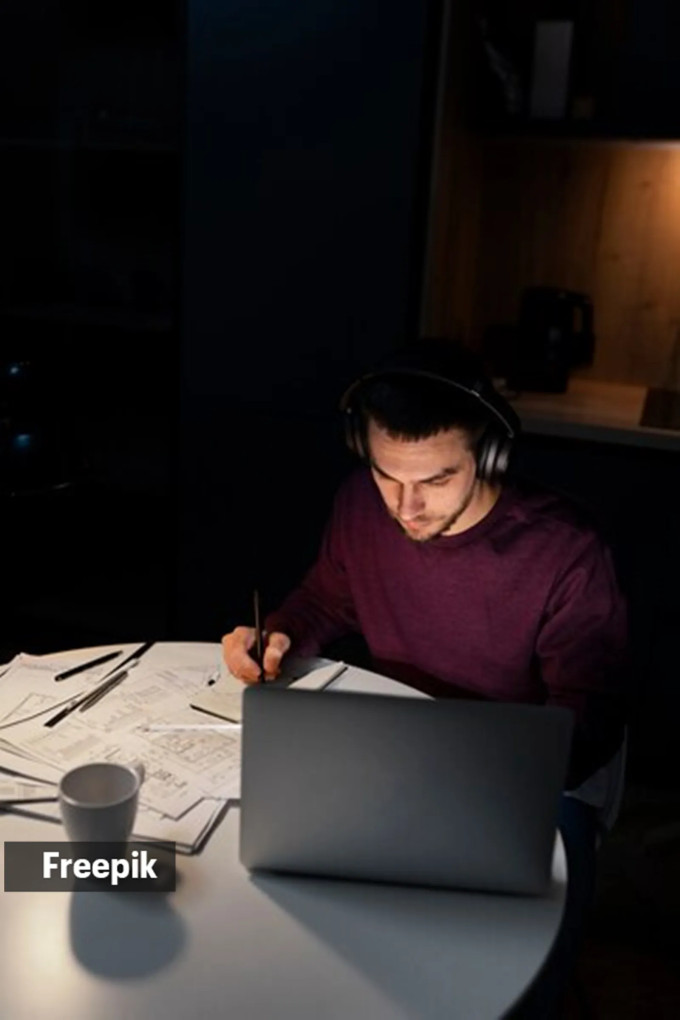Are you a night owl or prefer starting your day early? Your genes might hold the answer
In an Instagram reel, neurosurgeon Dr Arvind Bhateja introduces a fascinating concept that sheds light on our sleep patterns and preferences called the sleep chronotype.
He explains, “That means there are clear genetic differences between people. Some prefer to have a very early morning start like myself, and there are many others who are somewhere in the middle. And there are some who are night owls, who prefer to wake up late and stay up very late (sic).”

“Are you lazy or just a person who has peak energy during evenings?” he captions the post.
View this post on Instagram
A post shared by Dr Arvind Bhateja (Doc AB) (@doc.arvind.bhateja)
Neha Cadabam, senior psychologist and executive director at Cadabams Hospitals and Mindtalk, says, “A sleep chronotype refers to an individual’s natural preference for sleeping and waking times, influenced by their internal biological clock. This internal clock, or circadian rhythm, dictates the best times for various activities, including sleep, work, and relaxation. Factors influencing sleep chronotype include genetics, age, lifestyle, and environmental cues like light exposure.”
She adds that research in the Journal of Clinical Sleep Medicine highlights that chronotypes are largely genetic but can be influenced by external factors such as light exposure and social schedules .
Types of sleep chronotypes and their effects
There are generally four main sleep chronotypes, according to Cadabam. They are:
Morning Types (Larks): These individuals prefer early mornings, often waking up and going to bed early. They tend to be most productive in the early hours.
Evening Types (Night Owls): Night owls thrive in the late afternoon and evening, often staying up late and waking up late.
Intermediate Types (Hummingbirds): These individuals have a flexible schedule and can adapt to both early and late hours without much difficulty.
Bimodal Types: A rarer type, these individuals have two peak periods of alertness in a day, typically morning and evening.
Can someone’s sleep chronotype change?
Cadabam elaborates, “An individual’s chronotype can change over time due to various factors. Age is a common trigger; teenagers often shift towards an evening chronotype, while older adults tend to become morning types again. Lifestyle changes, such as job schedules or having children, can also influence chronotype. Additionally, significant life events or health changes can lead to shifts.”
 Night owls thrive in the late afternoon and evening (Source: Freepik)
Night owls thrive in the late afternoon and evening (Source: Freepik)
Impact on health and well-being
Understanding one’s sleep chronotype can significantly enhance overall health and well-being, says Cadabam. “Aligning daily activities with your chronotype can improve sleep quality, mood, and productivity. For instance, morning types should schedule important tasks early in the day, while evening types should aim to complete significant work in the late afternoon or evening.”
Specific strategies for optimising sleep based on chronotype include:
Morning Types: Maintain a consistent sleep schedule, and expose yourself to bright light in the morning.
Evening Types: Gradually adjust your sleep schedule earlier, and limit exposure to blue light in the evening.
Intermediate Types: Stick to a flexible yet consistent routine.
Bimodal Types: Take advantage of both peak periods by planning demanding tasks during these times.
Understanding and working with your sleep chronotype, rather than against it, can lead to a more balanced, productive, and healthier life, adds Cadabam.
Disclaimer: The copyright of this article belongs to the original author. Reposting this article is solely for the purpose of information dissemination and does not constitute any investment advice. If there is any infringement, please contact us immediately. We will make corrections or deletions as necessary. Thank you.
